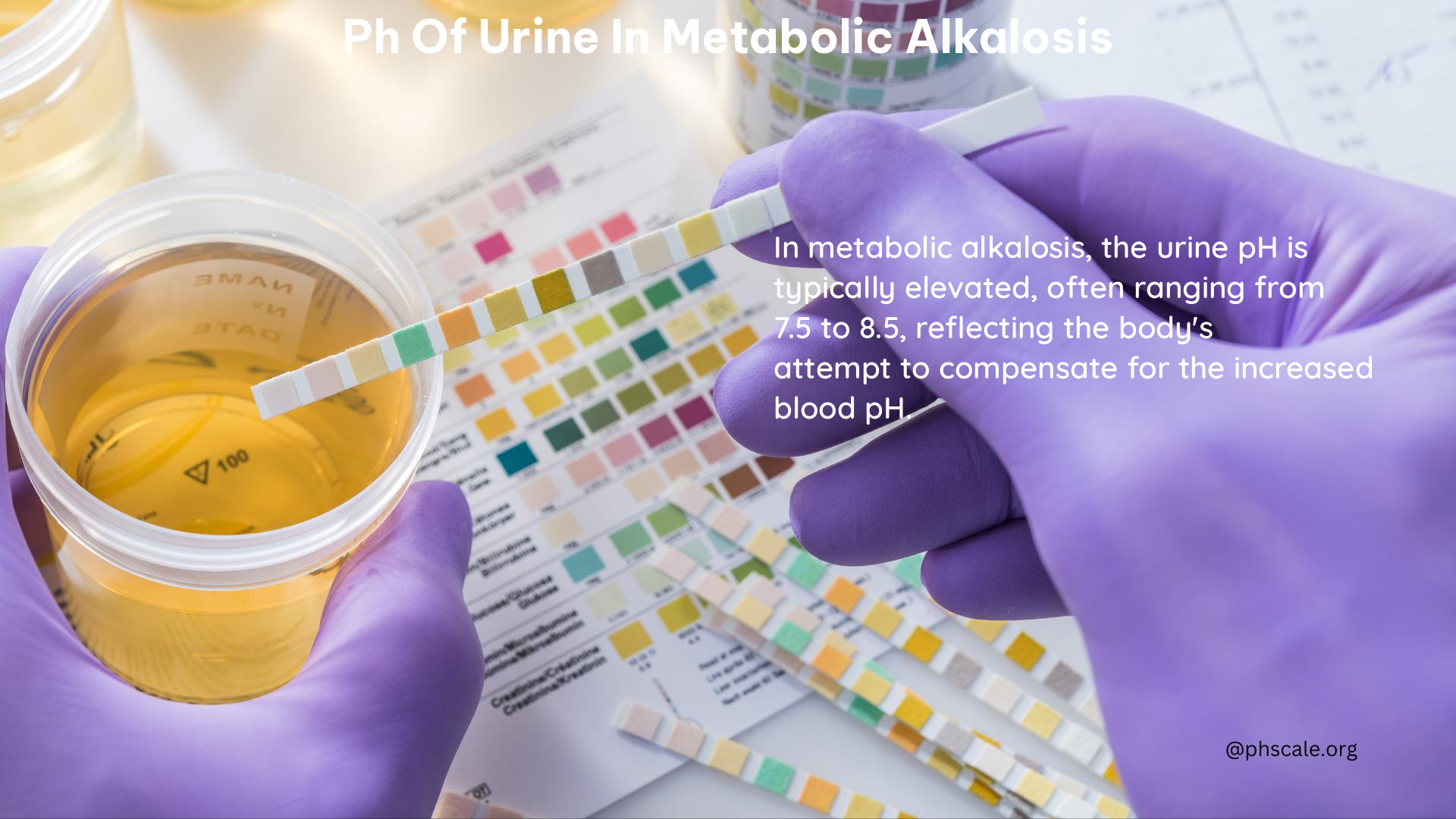The pH of urine in metabolic alkalosis is typically elevated due to the body’s compensatory mechanisms. In the initial stages, the urine pH may rise due to bicarbonaturia, the excretion of excess bicarbonate ions. As the body attempts to restore the acid-base balance, the kidneys increase the excretion of bicarbonate, leading to a higher urine pH. During the maintenance phase, the urine pH often normalizes as the body reaches a new equilibrium.
Initial Response
In the initial stages of metabolic alkalosis, the urine pH may rise to 7.5 or higher due to bicarbonaturia. This is the body’s immediate response to the excess bicarbonate in the blood, as the kidneys work to excrete the excess bicarbonate and restore the normal acid-base balance.
Compensatory Mechanisms

As the body attempts to compensate for the alkalosis, the kidneys increase the excretion of bicarbonate ions, leading to a higher urine pH. This is a normal response to help restore the body’s acid-base balance.
Maintenance Phase
During the maintenance phase of metabolic alkalosis, the urine pH typically normalizes to around 6.0 to 7.0. This is because the kidneys have increased their bicarbonate reabsorption, and the body has reached a new equilibrium.
Chloride-Responsive Alkalosis
In chloride-responsive metabolic alkalosis, the urine pH normalizes after the administration of sodium chloride (NaCl) solution. This helps to replenish chloride ions and correct the electrolyte imbalance.
Chloride-Unresponsive Alkalosis
In chloride-unresponsive metabolic alkalosis, the urine pH may remain elevated due to the persistence of high bicarbonate levels in the blood, which are not corrected by NaCl administration.
Contaminants and Chemicals
Several factors can contribute to the elevated urine pH in metabolic alkalosis:
- Bicarbonate Ions: Elevated levels of bicarbonate ions in the urine contribute to the alkaline pH.
- Chloride Ions: Low levels of chloride ions in the urine can contribute to the development of metabolic alkalosis.
- Potassium Ions: Hypokalemia (low potassium levels) can contribute to the development of metabolic alkalosis.
- Magnesium Ions: Low magnesium levels can contribute to the development of chloride-unresponsive metabolic alkalosis.
Home Remedies and Balancing pH
To help maintain the proper pH of urine in metabolic alkalosis, the following home remedies and lifestyle changes can be beneficial:
- Dietary Changes: Consuming a balanced diet rich in potassium, magnesium, and chloride can help maintain electrolyte balance and prevent metabolic alkalosis.
- Hydration: Adequate hydration is essential to help the body maintain its acid-base balance.
- Electrolyte Supplements: In some cases, electrolyte supplements like potassium or magnesium may be necessary to correct imbalances.
History
Metabolic alkalosis has been recognized as a distinct acid-base disorder for decades. The understanding of its causes, symptoms, and treatment has evolved over time, with significant contributions from researchers and clinicians.
References
- Merck Manual Professional Edition. (n.d.). Metabolic Alkalosis. Retrieved from https://www.merckmanuals.com/professional/endocrine-and-metabolic-disorders/acid-base-regulation-and-disorders/metabolic-alkalosis
- Medical News Today. (2022, September 21). Metabolic alkalosis: Causes and treatment. Retrieved from https://www.medicalnewstoday.com/articles/metabolic-alkalosis
- Medscape. (2022, September 21). Metabolic Alkalosis: Practice Essentials, Pathophysiology, Etiology. Retrieved from https://emedicine.medscape.com/article/243160-overview
